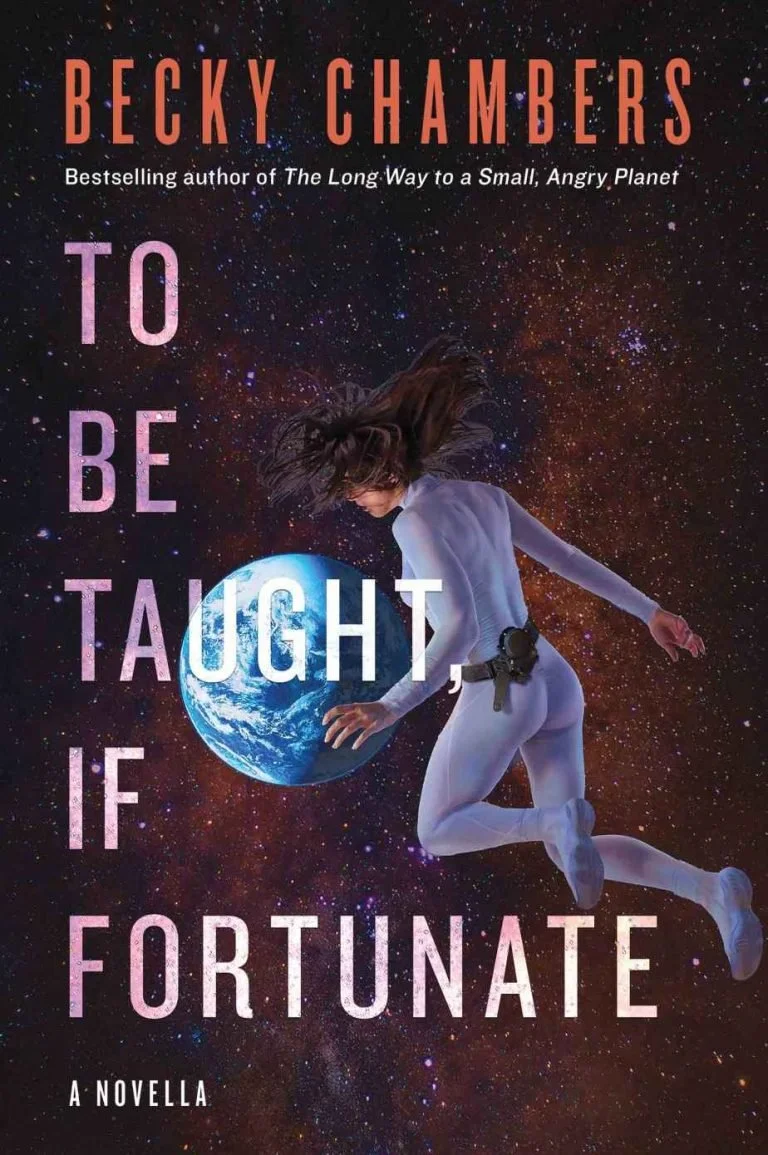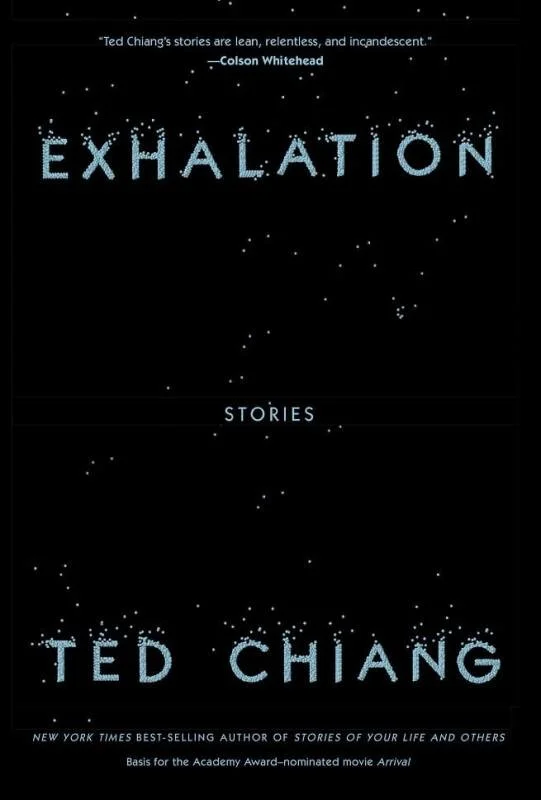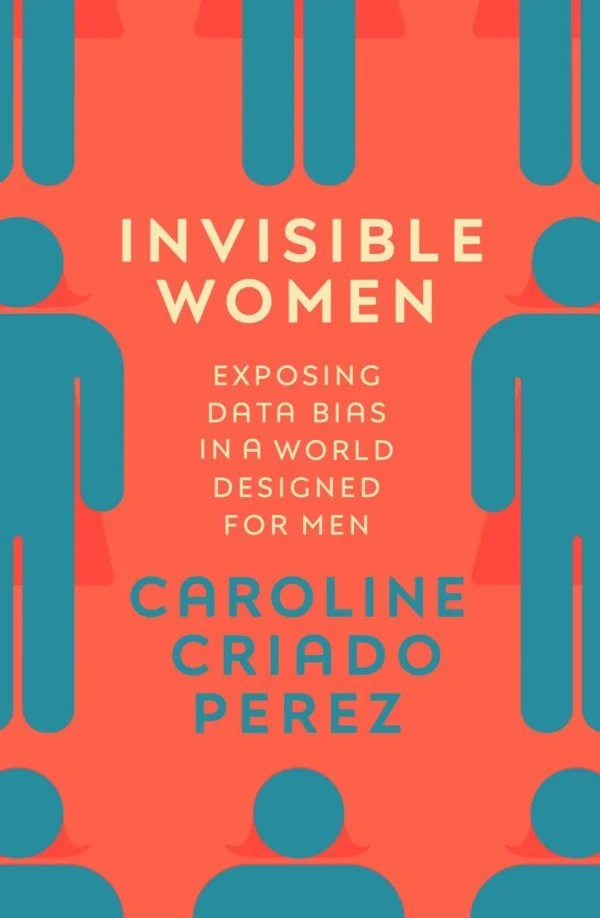2021 Book Highlights
Although this year is not quite over yet, I’ve decided to make a blog post about my top ten twelve books of 2021. The books listed are not limited to books that debuted or released this past year, but are my chosen highlights out of the ones I finally got around to reading. Without further ado, the highlights:
To Be Taught, If Fortunate by Becky Chambers
This novella legitimately made me cry at the end. If you aren’t familiar with Becky Chambers, I encourage you to read her work - she is a beautiful storyteller who specializes in found families, space (mis)adventures, and wonderful characters. This particular story takes place in Earth’s future, as an expedition sets off towards distant exoplanets in order to survey ecologically habitable worlds. A team of these explorers, Ariadne O’Neill and her three crewmates, set off to explore four exoplanets that are fifteen light-years from Earth. However, as they travel to these distant worlds, the culture back on Earth begins to change in alarming ways, potentially leaving Ariadne and her crew to be forgotten by their home.
As an aerospace engineer, I’m actually not a huge fan of hard sci-fi or stories that have an overt focus on technology. I tend to prefer softer, character-driven stories with rich world building and solid dialogue. This story manages to weave its science and technology aspects seamlessly in with a character-driven story filled with beautiful, creative exoplanet worlds. Like Chambers’ other work, this novella feels like the family you chose, like a live performance of Holst’s Jupiter, like camping under the stars. I would highly recommend it.
Algorithms of Oppression: How Search Engines Reinforce Racism by Safiya Umoja Noble
I believe that this book should be required reading for anyone working in tech, and in particular those working with search engines and big data. In this work, Dr. Noble records over six years of academic research on algorithmic bias in search engines - in particular from Google - from years 2009-2015. She describes the process of “technological redlining” in which discrimination is “embedded in computer code and, increasingly, in artificial intelligence technologies that we are reliant on, by choice or not.” Using screenshots from her own real-life searches, Dr. Noble is able to show the bias ingrained in Google’s algorithms and the company’s lackluster attempts to make changes to its code over time. This work is truly eye-opening, and poses excellent questions about how we access and curate information, who is controlling our online spaces, and how optimizing search algorithms can ultimately perpetuate harmful stereotypes.
My only complaint about this book is that because it was published in 2018, Dr. Noble does not get the chance to explore the growing phenomena of inflammatory fake news and divisive social media opinions that have only worsened in the past several years. I would love to hear her thoughts on those topics, and in particular the 2020 election, if she were ever to release a new edition or another book.
Light From Uncommon Stars by Ryka Aoki
This is my most recent read of this list, and my first time reading Aoki’s work. Light from Uncommon Stars is the story of Shizuka Satomi, who made a deal with the devil: to escape damnation, she must entice seven other violin prodigies to trade their souls for success. While searching for her seventh soul, Shizuka encounters Katrina Nguyen, a young transgender runaway, and immediately recognizes her talent. Meanwhile, in a donut shop off a bustling highway in the San Gabriel Valley, Shizuka meets Lan Tran, retired starship captain, interstellar refugee, and mother of four. Lan is on the run from an interstellar plague and is struggling to raise her family on a new planet while keeping her business above water.
I’ll admit, I was a bit surprised that this book was advertised through alleged similarities to Good Omens and Hitchhiker’s Guide to the Galaxy. While I can see why reviewers chose those comparisons, I think they are at best misleading, and at worse actively set up false expectations for this book. It does not have the same dry, British, Terry Pratchett- or Douglas Adams-esque humor as those two novels, nor is it quite as zany. However, this book is a wild ride nonetheless.
Filled with mouthwatering descriptions of Hainan chicken, cake donuts, and milk tea, this work seems to capture the intricacies of the Asian-American - and specifically queer, trans, Asian-American experiences - in a way that is both relatable and approachable for audiences who may not share a similar background. I am not a musician, but I loved Aoki’s details surrounding violin construction and music passages. Somehow, inexplicably, this book takes wildly disjointed elements and blends them seamlessly into a book with so, so much heart. Definitely worth the read.
Exhalation by Ted Chiang
I actually read the title story of this collection, Exhalation, several years ago in a creative writing course. Although that particular story was just as good the second time around, I believe that the rest of the stories in Exhalation are even stronger. Chiang has the unique ability to blend science fiction seamlessly with historical fiction in ways that are both detailed and timeless. He skillfully uses concepts from physics, artificial intelligence, and religion to discuss broader aspects of society and humanity as a whole. While not every story was a hit, the highs certainly outweigh the the lows. If you’re looking for stories that make you stop and think and wonder, or perhaps even despair - I cannot recommend Chiang’s work enough.
Invisible Women: Exposing Data Bias in a World Designed for Men by Caroline Criado Perez
While at face value it may seem like a laundry list of issues that affect women across the world, at its heart this book is something deeper. Through illustrative and well-researched examples, Perez captures specifically how “data gaps” lead to many problems in women’s healthcare, quality of life, wages, transportation, and more. Although Perez herself is based in the UK, she provides examples from the US, Canada, Sweden, and India. This work does an excellent job capturing how willful ignorance leads to complex, interconnected problems for women around the world. However, because many of the examples from this book are taken from Western countries, as a followup I would love to read more about specific issues facing women in the global south or see how these issues have evolved in the time since this book was first published.
The Wind-Up Bird Chronicle by Haruki Murakami
When I think of modern magic realism, I think of Haruki Murakami. Originally written in Murakami’s native Japanese, this novel follows narrator Toru Okada as he searches for his wife following her disappearance (along with their cat). Okada is swept up in a strange series of events involving clairvoyant sisters Malta and Creta Kano, a delinquent young girl May Kasahara, and the recollections of Mr. Honda and his experiences in the Kwantung Army at the Manchukuo-Russian during the Second World War. I admire Murakami’s ability to weave together multiple disjointed narrative threads into one wondrous story. It is the kind of book that I have to put down and think about for a long time after I finish reading it.
My only complaint about this work is that like many of Murakami’s other novels, it follows a formula. Generally, a middle-aged man is living a mundane life, sometimes in a city, until something strange and vaguely magical happens to kick off an even stranger series of events, ultimately leading to an ambiguous ending. Also, he has a tendency to include sex scenes that I assume are supposed to be artful, but I don’t always understand their contribution to the story. I think if I were to read his books back-to-back, I would quickly grow tired of some of his style choices. However, paced out, these books are a strange, unexpected delight.
The Fifth Season by N. K. Jemisin
So far I have loved everything that I have read by Jemisin, and The Fifth Season is no exception. Through three narrative voices, Jemisin explores the world of the Stillness, a supercontinent wracked by earthquakes and catastrophic climate events known as “fifth seasons.” The Stillness is desperate and disjointed, broken into different living communities, ethnicities, and castes. The most feared are orogenes - people with the ability to control energy and either prevent or cause “shakes” across the continent. The narrative weaves together the lives of Essun, Damaya, and Syenite across three separate time periods, through cities, comms, and the next oncoming Season.
It may be because I spent a lot of the last year reading Sanderson’s novels, but I’m always pleasantly surprised when magic systems aren’t overly engineered. I enjoy getting swept up in world building that leaves me wanting, that lets me wade into the world and explore it for myself. And although many fantasy novels have older characters, Jemisin’s writing of older and middle-aged women is a refreshing rarity in the genre. She allows her characters complexity, faults, and initiative that is sometimes hard to come by in fantasy.
My caveat here is that I have not yet read the rest of the trilogy, although I plan on starting book 2 later this month. If you are looking for a short story anthology, I would also highly recommend her collection How Long ‘Til Black Future Month?
Wordslut: A Feminist Guide to Taking Back the English Language by Amanda Montell
While at face value this book may appear to be a millennial pop-feminism take on language, I found it to be engaging, well-researched, and hilarious. I’ll admit that I’ve always found language and its relationship with society to be fascinating. Language complex, it is ever-evolving, and full of shortcomings. This book details the gendered aspects of language, from cadence, conversation, tone, word choice, and even the origins of the swear words we use. Montell dives into the way gendered nouns - like those used in the Romantic Languages - can affect the way speakers see the world, and how and why female politicians are often labeled “bossy” or “shrill.”
Like other books on this list, my only complaint for this is that I wanted more. I would love to see additional research from Montell on other non-gendered languages, like Finnish, or how languages that have many pronoun options (such as Japanese) compare to limited Western languages.
The Hidden Life of Trees by Peter Wohlleben
I’m not really sure why I picked up this book, but I am so glad I did. In this work, Wohlleben - a forest manager from Germany - paints a vivid picture of the ways trees live, grow, and socialize within their forests. Going into this read, I had absolutely no knowledge about trees, but nonetheless found it extremely interesting and educational. Wohlleben cites both his own breadth of experience in forestry as well as other research as to how trees protect one another, communicate, rear their saplings, and defend against predators. It’s a wild ride and I can guarantee that you’ll never look at trees the same way again.
The Raven Tower by Ann Leckie
I have often seen Ann Leckie’s work compared to that of Ursula K. Le Guin, and I will say that is absolutely not a stretch. Published in 2019, The Raven Tower is Leckie’s first full-length fantasy work, and it is a triumph. This story takes place in a world where gods are found across nature and often meddle with the affairs of humanity, taking sacrifices, causing wars, and quarreling amongst themselves. It is narrated by one such god, the Strength and Patience of the Hill, who inhabits a large boulder on an earth not unlike our own, and relies on both first and second person narration. This god counts the story of “you”, Eolo, loyal retainer to Mawat, a prince seeking to overthrow his usurper uncle and regain his rightful place as the servant of a local god.
I somehow managed to purchase this novel without realizing that it is based on Hamlet. Despite my (extreme) familiarity with the source material, this work is exciting and fresh, and never once did it feel like Shakespearean fanfiction. If anything, I delighted in the ways that Leckie subverted some of the Bard’s plot points and played with existing character roles. Leckie’s writing is lyrical; she skillfully switches between an eons-spanning story of gods forming coalitions across the continent and the smaller, intimate story of Eolo working to unravel the plot under the Raven Tower.
Placing Outer Space: An Earthly Ethnography of Other Worlds by Lisa Messeri
This work is another standout simply because of how unique it is. Throughout this book, Messeri interviews NASA scientists, analog astronauts, and exoplanet astronomers; she takes readers to the Mars Desert Research Station and a NASA research center to discuss ways scientists experience and map Mars. At a Chilean observatory and in MIT's labs she describes how they discover exoplanets and envision what it would be like to inhabit them. By studying how we classify other worlds, Messeri is able to teach us more about how we view and perceive our own home planet. Although it is very academic, this book is a quick read, and a delightful reframing of our own Earth from above.
Loki: Agent of Asgard by Al Ewing
And finally, a comic book. I’ve been slow to dip my toes into the world of comic books, but as I’ve started to use library apps more over the years, I realized that I didn’t actually have to buy countless (physical) comics in order to keep up with my favorite stories. I realized that I could rent them from libraries - and then buy the ones I liked anyway.
Agent of Asgard is one of those that I now own.
This series follows Loki, the adopted brother of Thor known for his villainous ways across the Marvel Universe, who is now tasked by the All-Mother to protect Midgard and repent for his past deeds. During his trials, Loki encounters an old, viciously evil version of himself who is bent on escaping back into the world to cause chaos and pain. Horrified by this vision of himself from the far-future, the newly christened Agent of Asgard works to avoid becoming this future self, but begins to question his own ability to do good. Like many other comic runs, there are quite a few narrative threads throughout the course of this series. However, the ending to this arc left me speechless. The writers tell a story of identity, of morality, of destiny and of free will using one of Marvel’s most complex characters. Highlights include a canonically genderfluid and pansexual Loki, a hilarious encounter with Doctor Doom, and standout side character Verity Willis, a woman who has the ability to see through any lie and who serves as an excellent foil for Loki.
If you’re looking to dive into Loki’s comic run, I would highly recommend this as a starting point. There is some background that can be found online or through reading through Loki’s Journey Into Mystery run alongside his appearance in Young Avengers, but regardless, it is a great story even if you’re only vaguely familiar with the one-time villain.
That’s all of my highlights - it was certainly a difficult list to make, because I read a lot of great books this year. I would have liked to include Sapiens, The Lost City of Z, or Madeline Miller’s Circe, but I wanted to keep this list as close to ten as I could, and they were all beat out by others for one reason or another. Regardless, hopefully this list can help inspire your next read for the New Year!












